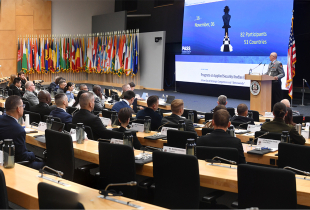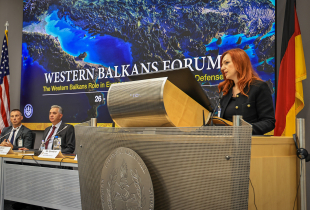
COVID-19 in the Central Asian Region: National Responses and Regional Implications
“Soon after the first instance of COVID-19 in Central Asia was recorded in March 2020 in Kazakhstan, the government took immediate steps to introduce containment and mitigation measures. As cases of COVID-19 appeared soon afterwards in Uzbekistan, Kyrgyzstan, and later in Tajikistan, the governments swiftly responded, instituting emergency measures, empowering law enforcement and medical authorities to implement a broad range of counter-infection mitigation measures to protect public health. Cross-border travel restrictions were imposed. Lockdowns and sheltering-in-place restrictions were imposed in most major cities and curfews were enforced. Routine commercial air flights were canceled or significantly reduced in international and many domestic airports. New levels of visa restrictions were implemented in all the Central Asian countries. The initial infection containment measures were highly successful in curtailing the early spread of Covid-19. But governments immediately confronted a broad range of social and economic difficulties brought on by Covid-19. The sudden interruption of typical earnings and livelihoods for many people, the disruption of commercial supply chains, the cratering of commodity prices and, for Kyrgyzstan and Tajikistan in particular, the loss of migrant labor opportunities and remittances, combined with other consequences of Covid-19 to produce a region-wide economic catastrophe...”
Excerpt from Gregory Gleason and Kuralay Baizakova, “COVID-19 in the Central Asian Region: National Responses and Regional Implications,” Connections: The Quarterly Journal Vol. 19, no. 2, Spring 2020: 101-114.
Kuralay Baizakova is a Professor of International Relations and World Economy at al-Farabi Kazakh National University, Almaty, Kazakhstan, and Director of its Institute for Security Issues and Cooperation. Her research interests include international security, regional security, security cooperation, regional integration, and European integration. Dr. Baizakova is an Alumna of the George C. Marshall Center and the author of the more than 300 scientific publications.
This article reflects the views of the author and are not necessarily the official policy of the United States, Germany, or any other governments.


